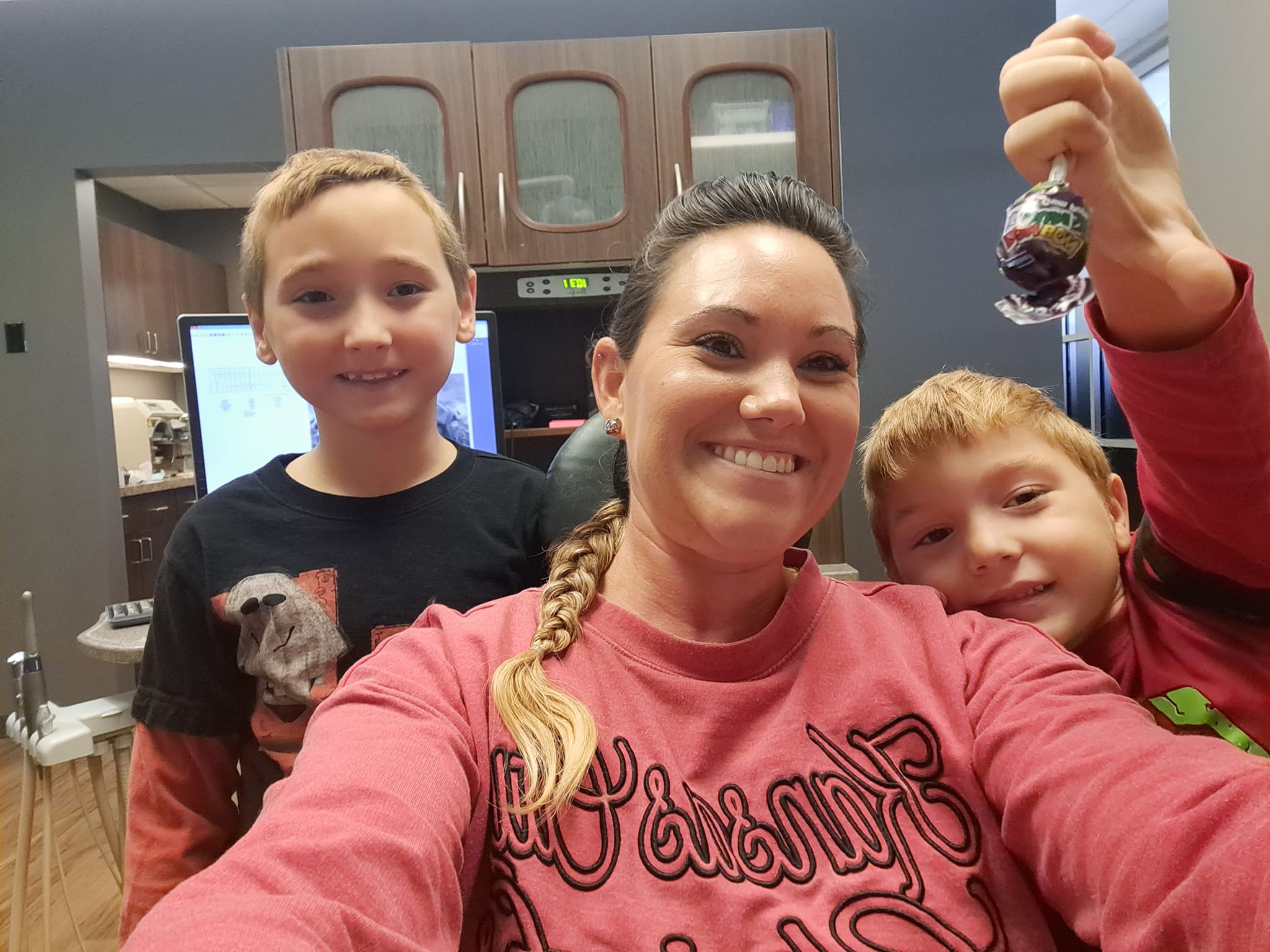
We LOVE our Little Patients!! When you have small kiddos, like we do, it can be overwhelming to make sure you’re doing “all the things” to keep these tiny humans happy and healthy! To take some of the guess work out of this subject, we’re going to focus this blog on some questions about dental health for kids that we, as both dental professionals AND parents, can answer.
Educating families about dental health for kids is important to us. We see it as a great opportunity to promote the benefits of children’s oral health and hygiene. Developing healthy dental habits at an early age, including brushing and scheduling regular dental visits, helps children get a good start at having a lifetime of healthy teeth and gums.
We want all of our patients to have healthy and beautiful smiles and we love to help educate families about their dental health, so let’s get started!

October can be a spooky season, but we want to help you not scare people away with bad oral hygiene! During this month, we’re sure that lots of Halloween candy is going to be haunting to you and your children. We’re all about indulging, but our team at Premier Dental in Lee’s Summit want to make sure your also having a HEALTHY Halloween.
Here are some tips to keep your oral hygiene healthy this Halloween.
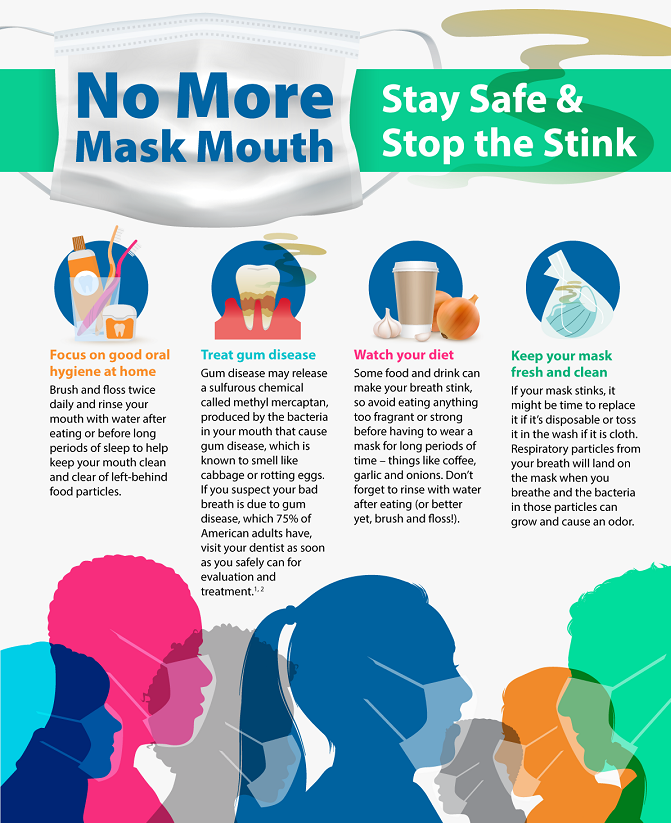
Oral care is more essential than ever. While wearing face coverings that are to protect us from diseases and are recommended by the CDC, dentists are seeing a rise in gum disease from “mask mouth.”
Mask Mouth refers to a range of symptoms associated with wearing a face mask. The main symptom being bad breath, or halitosis. While bad breath may seem annoying and temporary, it’s a sign that something isn’t quite right. It’s important to pay attention to any warning signs or symptoms of mask mouth and take action to prevent it!
Let’s look into some helpful, preventative measures for mask mouth.
The truth behind mask mouth:
One of the most common signs of mask mouth is bad breath. If you’re breathing through your mouth while wearing a mask, you’re drying out your mouth and causing bad breath. This can also cause dry lips.
Dry Mouth:
Saliva is such a great tool that our body already produces to help keep the germs out of our mouth, so when our mouth becomes dry and we lose saliva production, we build bad-breath bacteria in the mouth.
Less saliva in the mouth also means we are more prone to tooth decay and infections. When we are wearing our mask often and experience dry mouth, we’re advancing or progressing tooth decay.
Bad breath is often a sign that something isn’t quite right. When we wear our masks, we may breathe through our mouths more and dry out our mouths. While this may not seem like an issue, when we dry out our mouths, we leave them more susceptible to bacteria growth. When bacteria grow in our mouth, we can experience things like cavities and gum disease. Saliva is a huge multitasker in our mouths and it constantly keeps bacteria at bay. When we lose saliva production, we lose our biggest bacteria fighter.
The new oral hygiene issue — caused by, you guessed it, wearing a mask all the time to prevent the spread of the coronavirus — is leading to all kinds of dental disasters like decaying teeth, receding gum lines and seriously sour breath. Learn More about the stinky side effects of Mask Mouth HERE.
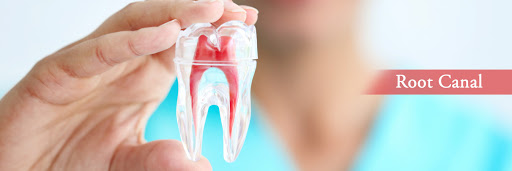
Do you have a toothache, but are a little unsettled at the thought of needing root canal therapy? We can get your questions answered and put you at ease. These are some of the questions we’ve gotten from our patients: What is a root canal? Can I avoid getting a root canal? What are the symptoms? And … will it hurt? (more…)
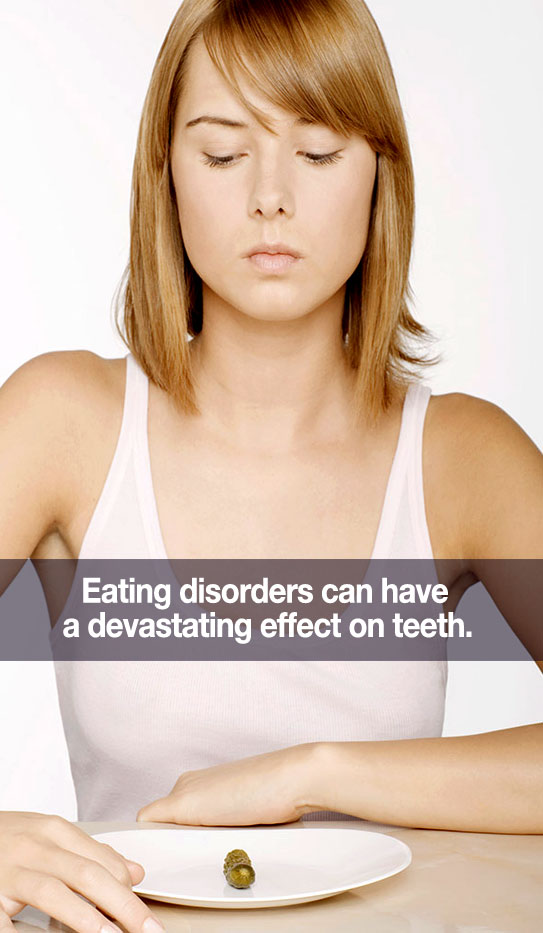
The body is all interconnected. When something is wrong in one area, other areas can also be greatly affected. Eating disorders are an example of this phenomenon within the body.
Related Article: Oral Health Problems and Overall Health: How Connected Are They?
When you experience an eating disorder, other parts of your body, such as your teeth and gums, may be affected in a way you never thought possible. For example, eating behaviors can affect your oral health in many ways, such as:
See more information HERE regarding signs, symptoms, side effects and dental problems caused by bulimia from EatingDisorderHope.com.
Related Article: Tooth Decay: Don’t Be A Statistic
According to Eating Disorder Hope, “dentists are recognized as being some of the first health care professionals to whom a previously undiagnosed eating disorder patient (EDP) may present.”
Read more on the resources provided by Eating Disorder Hope HERE.
Dentists can be essential in identifying the first signs of an eating disorder. Without identifying dental issues, someone could live with an eating disorder for years without any help. If your dentist asks you about your signs or symptoms, consider being honest and open with them to take the first step toward recovery and improved oral health.
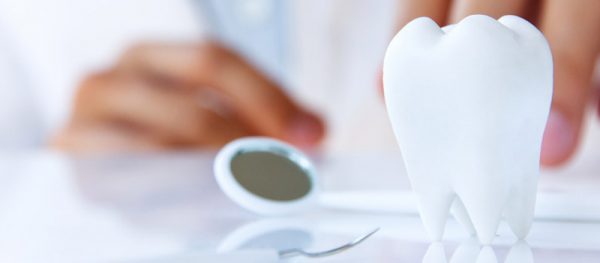
It’s a busy time of year. Our stomachs are already grumbling in anticipation of roasted turkey and pumpkin pie. Our minds are busy thinking about Christmas presents and holiday breaks from the workroom. In the hustle and bustle of everyday life, it’s easy to forget to take care of ourselves and instead get lost in the busyness of it all. However, no matter how busy we may be, it’s so vital to keep up with our oral health and hygiene. No one wants to worry about a cavity or a filling around the holidays, and that’s why it’s crucial to check in with your dentist before the end of the year.

Proper oral hygiene practices are necessary to ensure that teeth, gums, tongue, and cheeks are in top condition.
In the United States, oral health is a significant concern. Although patients are often encouraged to adopt healthy oral habits, not many people adhere to these principles. As a result, a vast number of U.S. citizens, both young and old, are suffering from the adverse impacts of oral disease. Presently, tooth decay is the most common chronic disease among adolescents — a statistic that signifies the gravity of the dental health crisis affecting the United States.
(more…)